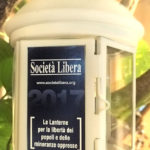Tibet: l’impiego diffuso della tortura da parte del Partito comunista cinese
Il gruppo GuChuSum, costituito da ex prigionieri politici, celebra la Giornata Internazionale a sostegno delle vittime delle torture, dichiarando che “la tortura è praticata sistematicamente da parte delle autorità cinesi contro i tibetani”.
Segue articolo in inglese:
The GuChuSum group of former political prisoners said in a statement on Sunday, marking International Day in Support of Victims of Torture, that torture was systemically practiced by Chinese authorities against Tibetans.”Electric shocks, kicking and beatings, stripping naked, throwing boiling water on the face, standing barefoot on ice are commonly used by Chinese authorities on Tibetan political prisoners in a futile attempt to destroy their spirit and break their resolve,” the statement said.”In spite of attempts by the Chinese government to show off its ethnic unity to the rest of the world and its projects and work that it puts in to help Tibet, in reality it carries out a series of unequal and discriminatory policies against ethnic minorities,” it said. “For this reason, Tibetan people can no longer put up with its rule of violence.” The Chinese government habitually discriminates against ethnic minorities in its judicial system, according to lawyers and scholars.
Violent response
Analysts said the GuChuSum campaign highlights a system in which any form of opposition or complaint by Tibetans—or other ethnic minority groups—is likely to attract a violent response from the ruling Communist Party. Tenzin Tethong, a Tibetan studies expert at the University of Virginia, said Chinese security forces in Tibet had been inculcated with racist ideas during their training. He cited the story of a lama named Jigme from Labrang monastery in Sichuan, who was taken to an army camp for interrogation. “The soldiers there were from Sichuan, and they said to him, did you know that these guns we carry were made with the purpose of killing old Tibetans like you?” “Basically they are not keeping the peace or maintaining security; they have a discriminatory attitude towards ethnic minorities which has been inculcated in them over many years by the government,” Tenzin Tethong said.
Difference in enforcement
Kirti monastery in Sichuan’s Tibetan-majority Ngaba (in Chinese, Aba) prefecture has been under siege by Chinese security personnel since a young monk from there set himself ablaze and died on March 16 in a protest against Chinese rule. And recent protests against destruction of local grasslands by ethnic Mongol herders and students triggered a massive influx of troops into Inner Mongolia at the end of May. Tenzin Tethong said Beijing often characterized talk of human rights as economic improvement, or a political weapon in the hands of Western countries wanting to attack China. But the problem lay more with a difference in the way China carried out law enforcement work among the ethnic Han majority and among its ethnic minorities, he said. “Whenever Tibetans oppose the Chinese government for whatever reason, for environmental, religious or linguistic reasons … the local officials turn them into something highly political and highly sensitive,” Tenzin Tethong said. “So the chance that they will use violence [against Tibetans] is far greater than in Shanghai or Beijing.”
Fonte: Dossier Tibet, 28 giugno 2011
Articoli correlati:
Condividi:
 Stampa questo articolo
Stampa questo articolo
| Condizioni di utilizzo - Terms of use |
|---|
| Potete liberamente stampare e far circolare tutti gli articoli pubblicati su LAOGAI RESEARCH FOUNDATION, ma per favore citate la fonte. |
| Feel free to copy and share all article on LAOGAI RESEARCH FOUNDATION, but please quote the source. |
 Quest'opera è distribuita con Licenza Creative Commons Attribuzione - Non commerciale 3.0 Internazionale. |













